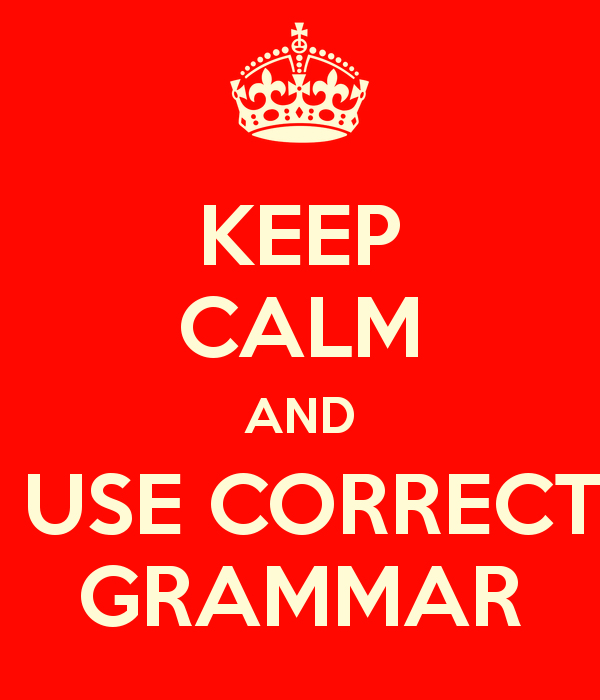Parts of Speech are the words that make up sentences. It is important to see how a word is used in a sentence before deciding on what part of speech it is. For example, the word “round” can be an adjective, noun, verb or preposition—as demonstrated in the following sentences:
- The ball is round. (adjective being used predicatively)
- He played a round of golf. (common noun)
- The sailor will round The Cape tomorrow. (transitive verb)
- He walked round the corner. (preposition)
Noun
Function: Nouns are the names of people, places, things, ideas, states or qualities.
Types: Common Nouns: town, road, book, dog, school (general names).
Proper Nouns: David, London, Hyde Park (particular names).
Collective Nouns: herd, flock, shoal (names of groups).
Abstract Nouns: fear, democracy, poverty (names of ideas, qualities).
Pronoun
Function: Pronouns are words that stand in place of nouns in order to prevent clumsy sentences. Types:
- Personal Pronouns:
- I, you, he, she, it, we, they (these act as subjects of sentences)
- me, you, him, her, it, us, them (these act as objects of sentences)
- Possessive Pronouns: mine, yours, his, hers, its, ours, theirs
- Reflexive Pronouns: myself, yourself, itself, ourselves, (etc.)
- Relative Pronouns: who, whose, whom, which, that. (these behave like conjunctions
- and they join sentences together)
Adjective
Function: an adjective modifies a noun.
Adjectives are describing words. We say they qualify nouns. Adjectives can be used either attributively or predicatively:
- Attributive use: The old man smiled. (“old” is before the noun)
- Predicative use: The man is old. (“old” is after the verb)
Types of adjectives
- Adjectives of quality: mauve curtains, happy children.
- Proper adjectives: American people, Brazilian towns, Dutch cheese.
- Demonstrative adjectives: this book, these books, that child, those children.
- Possessive adjectives: my eyes, your tooth, her bag, his hair (not to be confused with possessive pronouns).
- Indefinite Adjectives: some day, any stick, every boy.
- Numerical adjectives: three books, five days.
Double adjectives
Literary descriptive technique or style. For example:
- Remote blue eyes.
- Hard professional cutting blow.
Proper Adjectives
A proper adjective is a proper noun used as an adjective, or an adjective formed from a proper noun. Proper adjectives are normally capitalised. This includes brand names. For example:
Syrian food, a Nikon camera.
Some proper adjectives may not be capitalised because the association with a particular name is gone. For example either, Teddy bear or teddy bear is correct. Other words this has happened to are: bourbon whiskey and venetian blinds.
Prefixes attached to a proper adjective are not capitalised unless the prefixes themselves are formed from a proper noun. Thus: pro-Communist, pre-Raphaelite and Afro-Asian. (The prefix Afro- is formed from Africa.)
In a hyphenated word, only the proper adjective is capitalised. Thus: Flemish-speaking, Belgians.
Finally, note that a word often takes various forms depending on its purpose. For the noun “endlessness” becomes “endless” as an adjective (modifying a noun). An endless queue. As an adverb it becomes “endlessly” (modifying an adjective or verb). He complained endlessly.
Article
Function: These act as limiting adjectives. Types:
- Indefinite article: a, an
- Definite article: the
Verb
Function: Verbs denote an action or a state. They can be either transitive or intransitive:
- Transitive verbs have an object: Angela wrote an essay.
- Intransitive verbs do not have an object: Peter smiled sweetly.
Adverb
Function: an adverb modifies a verb, an adjective, or another adverb and so it changes the meaning of those words. Examples:
- He speaks bitterly. (Modifies the verb “speaks”)
- He speaks in an exceedingly bitter manner. (Modifies the adjective “bitter”)
- He speaks very bitterly. (Modifies the adverb “bitterly”)
Types:
- Adverb of Time: He will come tomorrow, today, by and by. (answers the question: When?)
- Adverb of Place: I have looked here, there and everywhere (answers the question: Where?)
- Adverb of Manner: He talks distinctly, well, slowly (answers the question: How?)
- Adverb of Degree: He seemed quite rich, very knowledgeable, hardly enthusiastic (answers the question: How much?)
Conjunction
Function: Conjunctions join words, phrases and sentences together. Types:
- Co-ordinating conjunctions: and, but, or.
- Sub-coordinating conjunctions: because, while, before, as, if, although.
Examples
- He was not at school. He was sick.
He was not at school because he was sick. (“because” joins two sentences)
Because he was sick, he was not at school. (Note the comma) - She was short. She won the high jump.
She won the high jump although she was short. (“although” joins two sentences)
Although she was short, she won the high jump. (Again, note the comma)
Preposition
Function: Prepositions show the relationship between a noun (or pronoun) and some other word. Examples:
- Water flowed under the bridge. (under)
- Age before beauty (before)
- Dog in a manger (in)
- Put the book in the box on the table. (in, on)
Literally speaking, a preposition is something that is positioned before a noun. Many are small single syllable words, such as “at”, “in”, “to”, “of”, “up”, and “for”, for example. Other prepositions include: “above”, “into”, and “amongst”; and there are some longer ones, “concerning”, and “notwithstanding”. And there are some fancy prepositions, “contra”, “cum”, “a la”, and so on). There is a rule that you should never end a sentence with a preposition, since they are rarely emphatic, whereas the last word in a sentence should be strong enough to carry emphasis. On the other hand a sentence can sound awkward if the rule is rigidly applied in some cases.
Interjection
These are words outside the grammatical construct that are used to express emotion, or feeling: “Oh, dear”; “Bah! Poppycock!”; and, so on.
By Nigel Benetton, science fiction author of Red Moon Burning and The Wild Sands of Rotar
Last updated: Monday, 13th January 2020